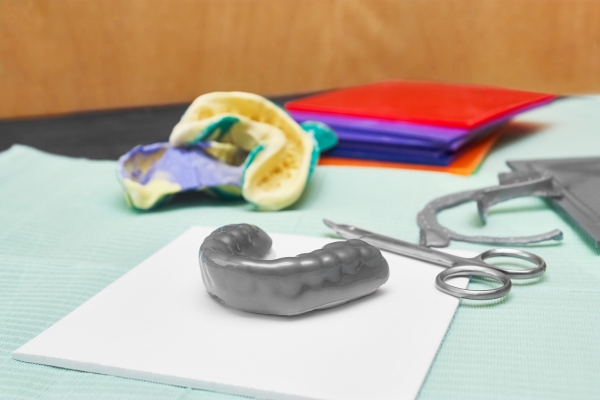Did you know that a single blow to your mouth can cause serious injuries? If you enjoy sports or any physical activity, it’s crucial to understand the importance of wearing a mouthguard.
You might think mouthguards are just for professional athletes, but that’s not true. Mouthguards are vital for anyone involved in activities where there’s a risk of facial impact. From football and hockey to skateboarding and gymnastics, the protection a mouthguard provides can make a huge difference. Let’s explore what mouthguards are, the types available, and the risks of not using them.
Understanding Mouthguards
What is a Mouthguard?
First things first, what exactly is a mouthguard? A mouthguard is a soft, flexible device worn over your teeth to protect them from impacts. You wear it during activities where there’s a risk of getting hit in the mouth. Think of it as a helmet for your teeth. They’re made of durable materials that can absorb and disperse the force of a blow, minimizing the damage to your teeth and mouth.
When you wear a mouthguard, it forms a protective barrier between your teeth and any impact. The American Dental Association recommends the use of mouthguards in 29 sports/exercise activities.This helps prevent serious dental injuries like fractures, tooth loss, and root damage. Without a mouthguard, your teeth and mouth are exposed to the full force of any hit, which can cause significant harm.
Types of Mouthguards

Now, let’s talk about the different types of mouthguards available. You’ve got three main options: stock, boil-and-bite, and custom-made.
Transitioning into the details, stock mouthguards are pre-formed and ready to wear. They’re the cheapest option but often don’t fit very well. You might find them uncomfortable because they’re not tailored to your mouth. Since they are mass-produced, they tend to be bulky and can make talking and breathing more difficult.
Boil-and-bite mouthguards are a step up. You soften them in hot water, then bite into them to create a custom fit. They offer better protection and comfort than stock mouthguards, but they still might not fit perfectly. These are available at most sporting goods stores and are a popular choice due to their balance of cost and fit.
Finally, there are custom-made mouthguards. These are crafted specifically for you by a dentist. Custom mouthguards the most comfortable and provide the best protection because they’re tailored to fit your mouth exactly. They are a bit more expensive, but many people find the cost worth it for the enhanced safety and comfort. Custom-made mouthguards also allow for easier breathing and talking, which can be crucial during sports.
The Risks of Not Wearing a Mouthguard
Dental Injuries
Transitioning to the risks, dental injuries are at the top of the list when you skip wearing a mouthguard. Imagine taking a hard hit during a game and feeling a sharp pain in your mouth. You might end up with fractured teeth. Teeth can crack, chip, or break entirely, leading to painful and often expensive dental procedures to fix them.
Even worse, you could lose a tooth completely. An impact might knock a tooth right out of your mouth, which can be a traumatic experience. Replacing a lost tooth often involves implants or bridges, both of which are costly and require significant dental work.
Soft Tissue Injuries
Not wearing a mouthguard doesn’t just put your teeth at risk; it also makes your gums, lips, and cheeks vulnerable. Without a mouthguard, you can easily cut or bruise the soft tissues inside your mouth. A sudden impact might push your teeth into your lips or cheeks, causing painful lacerations. These injuries might not seem as severe as losing a tooth, but they can be very painful and take time to heal.
Jaw Injuries
Your jaw is another area that’s at risk without a mouthguard. A strong enough blow can fracture or even dislocate your jaw. This type of injury isn’t just painful; it can also take a long time to heal and might require surgery. Wearing a mouthguard helps absorb the shock of a blow, reducing the risk of these severe injuries. A fractured jaw can impact your ability to eat, speak, and even breathe properly, making the healing process both physically and emotionally challenging.
Long-Term Consequences

Chronic Pain
Transitioning to long-term effects, dental and jaw injuries can lead to chronic pain. If you suffer a severe impact and damage your teeth or jaw, the initial injury is just the beginning. Cracked or fractured teeth can be incredibly painful and might require multiple dental visits to fix. Even after treatment, you might experience ongoing discomfort or sensitivity. Jaw injuries, like fractures or dislocations, can lead to long-term pain that affects your daily activities. Eating, talking, and even sleeping can become challenging tasks when you’re dealing with chronic pain from an untreated injury.
Cost Implications
Beyond pain, there’s the financial impact to consider. Dental work isn’t cheap, and repairing the damage caused by a sports injury can be very expensive. For instance, fixing a fractured tooth might involve procedures like bonding, crowns, or even root canals. If you lose a tooth, you’re looking at the cost of implants or bridges, which can run into thousands of dollars. Jaw injuries might require surgery, which adds even more to your medical bills. In comparison, the cost of a mouthguard is relatively low. Spending a bit on a good quality mouthguard can save you from these hefty expenses in the long run.
Quality of Life
Let’s also talk about how these injuries can affect your quality of life. Dental injuries can make eating and drinking painful. Imagine not being able to enjoy your favorite foods because chewing hurts too much. Speaking can also become difficult, affecting your communication with others. For young athletes, missing school or social activities due to dental appointments and recovery time can be frustrating. Jaw injuries can be even more extreme, potentially affecting your breathing and sleep patterns. Overall, the impact on your daily life can be significant, making prevention through the use of a mouthguard all the more critical.
Psychological Impact of Mouthguards
Fear and Anxiety
Transitioning to the psychological side, not wearing a mouthguard can also lead to fear and anxiety. If you’ve ever experienced a dental injury, you know how traumatic it can be. The fear of getting hurt again can affect your performance in sports or other activities. You might hold back or play more cautiously, which can impact your enjoyment and effectiveness. This anxiety isn’t limited to the person injured; parents of young athletes might also worry about their children’s safety. The constant fear of injury can overshadow the fun and excitement of participating in sports.
Self-Esteem Issues
In addition to fear and anxiety, dental injuries can impact your self-esteem. Your smile is one of the first things people notice about you. Visible dental damage, like missing or broken teeth, can make you self-conscious about your appearance. This can lead to a reluctance to smile, laugh, or even talk freely, affecting your social interactions. For teenagers and young adults, who are already navigating the complexities of self-image, this can be particularly tough. A mouthguard can help prevent these injuries and the subsequent self-esteem issues, allowing you to enjoy activities without worrying about your appearance.
Common Myths and Misconceptions About Mouthguards

Mouthguards are Uncomfortable
Transitioning to myths and misconceptions, one common belief is that mouthguards are uncomfortable. You might think that wearing a mouthguard makes it hard to breathe or talk. While this might be true for poorly fitting stock mouthguards, it’s not the case for custom-made ones. Custom-made mouthguards are designed to fit your mouth perfectly, offering comfort while providing protection. Modern materials and designs have made mouthguards more comfortable than ever. All you need to do is keep your mouthguard clean and protected and it’s great to use.
Mouthguards are Unnecessary for Non-Contact Sports
Another myth is that mouthguards are only necessary for contact sports like football or hockey. This misconception can be dangerous. Dental injuries can happen in any sport, including those considered non-contact, like basketball, gymnastics, or skateboarding. Even a simple fall can cause significant dental damage. According to the American Dental Association, athletes who don’t wear mouthguards are 60 times more likely to suffer dental injuries. So, regardless of the sport, wearing a mouthguard is a smart preventive measure.
Mouthguards are Only for Kids
Lastly, there’s the belief that mouthguards are only for children and young athletes. This isn’t true. Adults are just as susceptible to dental injuries. Whether you’re playing a weekend pickup game, participating in a recreational league, or engaging in any physical activity, a mouthguard can protect your teeth. Injuries don’t discriminate by age, and the protection a mouthguard offers is valuable for athletes of all ages. Investing in a mouthguard as an adult is just as important as ensuring your children wear one.
Final Thoughts
Wearing a mouthguard is a simple yet effective way to protect yourself from severe dental and facial injuries. The benefits far outweigh the minimal inconvenience of wearing one. From preventing chronic pain and costly dental procedures to maintaining your quality of life and boosting your self-esteem, the importance of a mouthguard cannot be overstated. Remember, whether you’re playing a contact sport or a non-contact activity, a mouthguard is an essential piece of equipment. Don’t let myths and misconceptions keep you from taking this crucial step for your safety. Invest in a good mouthguard and wear it consistently to enjoy your activities without fear of injury.
FAQs
1. What is the best type of mouthguard for sports?
The best type of mouthguard for sports is a custom-made one provided by a dentist. It offers the best fit, comfort, and protection compared to stock or boil-and-bite mouthguards.
2. How often should I replace my mouthguard?
You should replace your mouthguard at least once a year, or sooner if it shows signs of wear and tear. For growing children and teenagers, more frequent replacements might be necessary to ensure a proper fit.
3. Can I wear a mouthguard if I have braces?
Yes, you can wear a mouthguard if you have braces. In fact, it’s highly recommended to protect both your teeth and orthodontic appliances. Custom-made mouthguards are available that fit over braces.
4. How do I clean and maintain my mouthguard?
To clean your mouthguard, rinse it with cool water after each use and brush it with a toothbrush and toothpaste. Store it in a ventilated case to allow it to dry and avoid exposure to extreme temperatures to prevent distortion.
